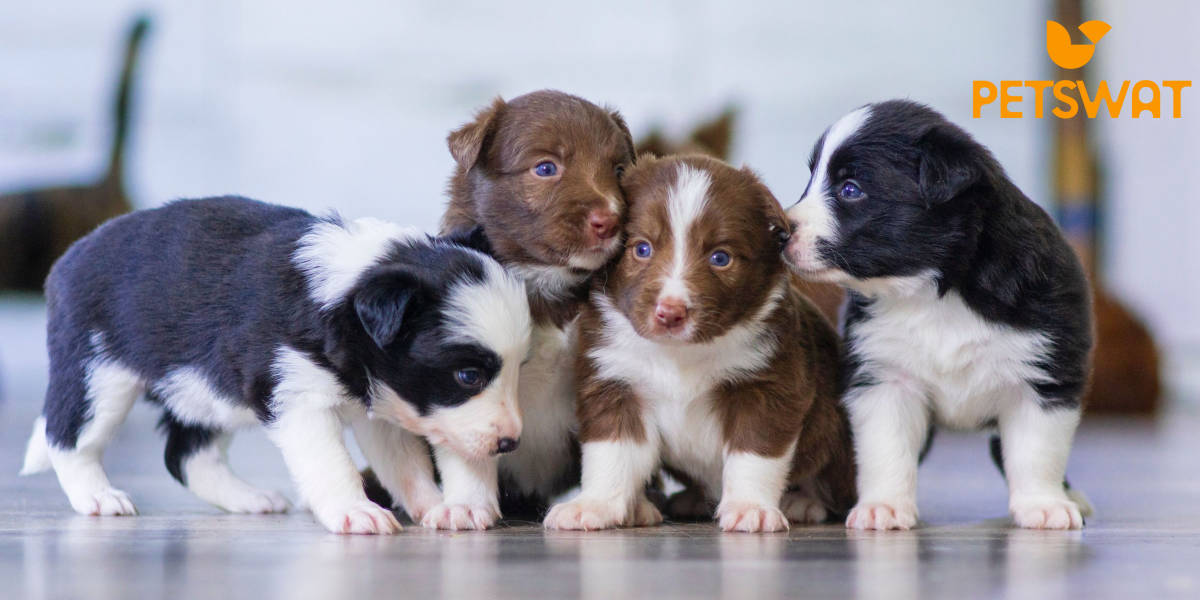Border Collies are known for their intelligence and athleticism. They are a highly energetic and agile breed that excels in various activities such as herding, agility, and obedience. Border Collies have gained a reputation for being one of the smartest dog breeds, often compared to human intelligence. Their ability to learn quickly and problem-solve has made them highly sought after for both work and companionship. Today, let’s explore how many puppies do Border Collies have.
Contrary to popular belief, Border Collies typically have smaller litters compared to other breeds. The average litter size for Border Collies is around 4-6 puppies.
Border Collies as Herding Dogs
Border Collies have a long history as herding dogs on farms and ranches. Originating from the border region between England and Scotland, these dogs were bred specifically for their herding abilities. They have an innate instinct to gather and control livestock, making them invaluable assets to farmers.
Border Collies are known for their intense focus and strong work ethic. They have a natural ability to anticipate the movements of livestock and respond accordingly. Their intelligence allows them to make quick decisions in high-pressure situations, making them highly efficient herders.
Common Misconceptions about Border Collies
One common misconception about Border Collies is that they have large litters of puppies. This assumption may stem from their reputation as hardworking dogs, leading people to believe that they would produce a large number of offspring. However, this is not the case.
Border Collie Litter Size
Contrary to popular belief, Border Collies typically have smaller litters compared to other breeds. The average litter size for Border Collies is around 4-6 puppies. There are several reasons for this smaller litter size.
Selective breeding plays a significant role in determining litter size. Breeders often prioritize the health and well-being of the mother and her puppies over quantity. By selectively breeding dogs with smaller litter sizes, breeders can ensure that each puppy receives adequate care and attention.
Genetics also play a role in determining litter size. Some dogs may have a genetic predisposition to smaller litters, while others may have larger litters. This genetic variation is normal and can be influenced by the breeding pair’s genetic makeup.
Additionally, the breed’s long lifespan may contribute to smaller litter sizes. Border Collies have an average lifespan of 12-15 years, which is longer than many other dog breeds. This longer lifespan allows breeders to space out breeding cycles, resulting in smaller litters.
Border Collies as Pets and Working Dogs
Despite their smaller litter size, Border Collies remain a popular choice for both pet owners and working dog enthusiasts. Their intelligence, athleticism, and loyalty make them highly versatile and adaptable.
As pets, Border Collies require mental and physical stimulation to thrive. They excel in activities such as obedience training, agility, and flyball. Their intelligence allows them to quickly learn new commands and tricks, making them a joy to train.
In the working dog realm, Border Collies continue to be highly valued for their herding abilities. They are often used on farms and ranches to gather and control livestock. Their natural instincts and quick thinking make them indispensable partners for farmers.
Responsible Breeding Practices
Responsible breeding practices are crucial when it comes to ensuring the health and well-being of both the mother and her puppies. Breeders should prioritize the health and temperament of their dogs over quantity.
It is essential for breeders to conduct health screenings on their breeding dogs to identify any potential genetic issues that could be passed on to the puppies. Regular veterinary care, proper nutrition, and a clean living environment are also essential for the mother’s well-being during pregnancy.
Once the puppies are born, breeders should provide them with proper socialization and early training to set them up for success in their future homes. This includes exposing them to various sights, sounds, and experiences to help them become well-rounded individuals.
Conclusion
While it is true that Border Collies typically have smaller litters compared to other breeds, this should not overshadow the many qualities that make them exceptional dogs. Their intelligence, athleticism, and loyalty are what truly set them apart. Whether as pets or working dogs, Border Collies continue to be highly valued and cherished by their owners. Responsible breeding practices ensure that each puppy receives the care and attention they deserve, regardless of litter size.
Originally posted 2023-09-02 09:17:03.
Johny is a dedicated pet enthusiast, author, and the driving force behind the insightful content at PetSWAT. With a deep passion for animals and a wealth of knowledge acquired through years of experience, Johny brings a unique perspective to the world of pet care and companionship.


